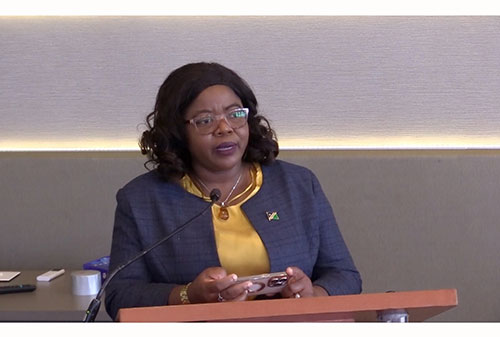The Deputy Minister of International Relations and Cooperation, Jennely Matundu, said Namibia is vulnerable to climate change and disasters, and that is a challenge that calls for a paradigm shift from investments in disaster response to preparedness.
The deputy minister said this during the inaugural meeting of the Africa Multi-Hazard Early Warning and Early Action System (AMHEWAS) Steering Committee in Windhoek yesterday, which will continue until 28 July.
“The AMHEWAS programme is well positioned to mobilise resources and establish multi-hazard early warning systems (MHEWS) to reduce disaster losses by 2030, which will contribute to building a resilient continent,” Matundu said.
She also stated that there is a request for support to establish MHEWS for Namibia that will be aimed at reducing disaster losses and accounting for loss and damage and could be used for climate change negotiations.
Adekunle Joliff Milton King, permanent representative to the African Union and the United Nations Economic Commission for Africa, and chairperson of the bureau of the permanent representative council sub-committee on environmental issues, said Africa is facing increasing disaster losses and damages due to social and economic vulnerability and unsustainable land use practices, adding that floods, tropical cycles, landslides and windstorms have increased in frequency.
“Between January and June 2023, more than 700 people lost their lives, 152 000 were displaced, and over one million were disproportionally affected by tropical cyclones across Malawi, Mozambique and Madagascar,” King added.
Director of sustainable environment and blue economy of the African Union Commission, Harsen Nyambe said even though Africans contribute the least to climate change, they have no choice but to address it because climate change means more Africans will go hungry and face epidemic diseases and vectors, and more of them will stand to descend.
“It is for this reason that, as an African Union, we felt that we could no longer continue to talk because talk is cheap. It’s time to walk the talk and embark on concrete actions that will help us avoid some of the challenges that we face in terms of climate change,” Nyambe stated. -Nampa


